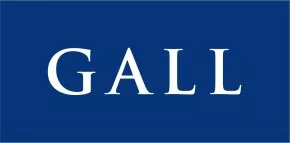The Surge of COVID-19 Scams
Since the outbreak of COVID-19, we have seen an overwhelming demand worldwide for Personal Protective Equipment (PPE), which includes respirators, surgical masks, gloves and face shields. Regrettably, unscrupulous traders never miss an opportunity to capitalise on public fears and concerns. Amid these difficult times, there has been a surge of fraud schemes associated with PPE transactions all around the globe. In Hong Kong, over 1,600 reports of online mask scams were received by the Hong Kong Police between January and March this year, consisting of more than 3,000 individual victims and local companies involving a total of HK$48.2 million1. It has also been reported that fraudulent mask schemes totalling US$799 million were uncovered in United States in the last few months2, and similar patterns have been observed across the Europe.
PPE frauds typically fit the following two scenarios:-
- Fictional PPE: Fraudsters offer to sell PPE which does not exist. After the victim makes payment into the fraudsters' bank account, the fraudsters disappear and no PPE will ever be delivered. The victim would wish to at least recover the money paid.
- Quality of PPE falling below established standards: Fraudsters offer to sell PPE which meets a certain established standard (g. the Chinese standard of KN95, US standard of N95, European standard of FFP2, etc.). The PPE is delivered, but of outrageously poor quality which does not meet the standard promised. In this scenario, the victim may wish to (i) return the PPE, get a refund and possibly compensation for the loss incurred or (ii) keep the PPE with a view to reselling them with proper labelling and description, and sue for the loss.
While due diligence must be exercised with great caution before an order is placed and money is paid, it is not surprising to see that one may still fall prey to an elaborate fraud scheme, often orchestrated by groups of sophisticated scammers. This article aims to provide practical tips for businesses and individuals when they are unfortunately defrauded in so-called "COVID-19 Scams".
Stop the clock, trace the funds
As the first step, the victim should consider taking prompt action to preserve whatever is left in the relevant bank account, so that he would not be left with nothing more than a moral victory by the time a judgment is finally obtained.
If involved in a PPE scam where no PPE is ever delivered, the victim should report the scam to the Hong Kong Police as soon as possible. The Hong Kong Police may issue a "no consent" letter to the relevant bank, directing the bank that it does not have consent to deal with the account. Out of caution, the bank would often proceed to stop the dealings in the bank account. In such circumstances, the victim will be able to achieve the goal of freezing the bank account at virtually no cost. It should however be noted that such measures are not complete substitutes of a "freezing order" made by the Court, given that the "no consent" letter would be reviewed by the authority from time to time not subject to the victim's control and such measures would only reach the funds in the identified bank account but not the other assets of the fraudsters.
In appropriate circumstances, the victim should also consider applying for either or both of a proprietary injunction and Mareva injunction (also known as the "freezing order"), which the Hong Kong High Court has jurisdiction to grant in aid of court and arbitral proceedings, commenced or to be commenced in Hong Kong and foreign jurisdictions. Generally speaking, a proprietary injunction aims at preserving the particular assets which a plaintiff has a proprietary claimso that they can be turned over to him if he is successful in the action, while a Mareva injunction is designed to protect the plaintiff against the dissipation of assets of the defendant in general against which the plaintiff may otherwise execute judgment. Where there are insufficient assets in Hong Kong but there exist assets elsewhere to satisfy a claim, the victim may consider applying for a worldwide Mareva injunction to freeze assets located both locally and abroad, especially where the fraudsters have certain Hong Kong nexus or assets so that such weapon would have teeth. While a Mareva injunction is recognised as the law's "nuclear weapon", such applications, usually made on an urgent basis, are inevitably costly and there is no guarantee that there is still money left in the relevant bank account when international fund transfers can now be made in a split second.
In order to trace the whereabouts of the funds so that further action may be taken against the second-level recipients and others along the chain of transfers, the victim may wish to apply for ancillary disclosure orders in the same application for the injunctive relief. In the standard form of a Mareva injunction, the Court will order the defendant to disclose, by way of affidavit evidence, his assets with their value, location and details. The Court also has jurisdiction to order third parties, such as the bank with which the relevant bank account is held, to disclose details of the transactions in the account within a certain period of time, if the relevant legal requirements are met. The practical difficulty in a lot of cases is that the tracing exercise is time-consuming and expensive, and even when the subsequent recipients are identified, the victim has to overcome various legal hurdles in order to establish a claim against them.
Civil action to recover the money
An injunctive relief only serves the purpose of preserving the funds in the relevant bank account and other assets of the fraudsters, against which a judgment may be executed. In order to establish an entitlement to the funds and assets, a civil action against the holder of the relevant bank account and fraudsters (if they could be identified) is required.
A victim purchasing fictional PPE may rely on causes of action including deceit, unjust enrichment, constructive trust, knowing receipt and dishonest assistance. If the defendant does not come forward, the victim can obtain a default judgment, which may be enforced by way of garnishee proceedings so that the funds in the bank account would be transferred to the victim directly.
The situation is likely to be more complicated if a victim purchases PPE falling short of the required standard, given that the victim indeed receives something in return. The victim may take note of the following where there exists a formal sale and purchase contract:-
- Express terms of the contract: The contract may specify the details of the products to be supplied, including the requisite standard. Failure to supply PPE accordingly constitutes a breach of contract.
- Implied terms of the contract: Under Hong Kong law, terms as to merchantable quality, fitness for purpose and conformity with description and samples may be implied into a contract pursuant to the Sale of Goods Ordinance (Cap. 26).
- Misrepresentation: The victim may be induced to enter into the contract by misstatements made by the counterparties, which may be fraudulent or negligent. The victim may choose to keep the products delivered and only sue for damages, or to rescind the contract so that the products would be returned for a refund.
- Other issues: governing law, dispute resolution clause, exemption clause.
Conclusion
It is unfortunate that COVID-19 provides a breeding ground for a new pandemic of related scams and frauds. Each case has its own facts and there is no one-size-fits-all solution. It is important for defrauded businesses and individuals to understand the benefits and costs of available options so that they can make an informed decision as to the most cost-effective approach for their particular circumstances. Above all, time is of the essence if one is to successfully recover the money before it has been disposed of by the fraudsters.
Footnotes
1 Clifford Lo (2020) 'Coronavirus: con artists swindle thousands of Hongkongers in face mask scams totalling HK$48 million', South China Morning Post, 11 April 2020, accessed at https://www.scmp.com/news/hong-kong/health-environment/article/3079388/coronavirus-con-artists-swindle-thousands
2 Alexandra Sternlicht (2020) 'Almost $800 Million In Mask Scams Alleged In The U.S. Alone', Forbes, 27 May 2020, accessed at https://www.forbes.com/sites/alexandrasternlicht/2020/05/27/almost-800-million-in-mask-scams-alleged-in-the-us-alone/#2c016cff712b
Originally published 11 August, 2020
The content of this article is intended to provide a general guide to the subject matter. Specialist advice should be sought about your specific circumstances.



